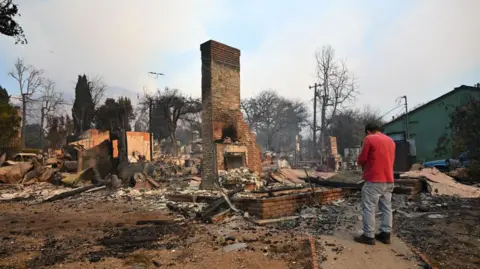Wildfires have long been a devastating reality for communities across California, and Los Angeles County is no stranger to the havoc they wreak. In the face of these challenges, Amazon has stepped up, combining its logistical expertise, cutting-edge technology, and deep partnerships with nonprofits to provide impactful relief to those affected. From leveraging its Disaster Relief Hub to collaborating with the Red Cross, Amazon’s wildfire relief efforts showcase how corporations can play a vital role in community recovery.
A Rapid Response: Amazon’s Disaster Relief Hub
Amazon’s Disaster Relief Hub, located in Atlanta, is designed to provide essential items quickly and efficiently in times of crisis. As the wildfires raged through LA County, this hub became a lifeline for impacted communities. Over 6,000 essential items—including hygiene kits, bottled water, clothing, and food supplies—were rapidly dispatched to evacuation centers and affected neighborhoods.
“When disaster strikes, time is of the essence,” said a spokesperson from Amazon’s Disaster Relief team. “Our goal is to ensure that those on the frontlines and those impacted receive the support they need as quickly as possible.”
By harnessing its supply chain network, Amazon ensured that relief supplies reached even the most remote and hard-hit areas in record time (Amazon News).

Partnering with Nonprofits to Multiply Impact
Collaboration has been at the heart of Amazon’s wildfire relief efforts. By partnering with trusted organizations like the American Red Cross, Amazon amplified its impact. Nonprofit partners helped distribute supplies to shelters, provide meals to evacuees, and ensure that the right resources reached the right people.
Amazon’s contributions weren’t just limited to physical goods. The company also donated financial resources to support the operational needs of its partners. These funds helped organizations like the Red Cross maintain shelters, provide mental health support, and deliver medical care to affected individuals (Red Cross Partnerships).
Empowering First Responders with AWS Technology
Technology has played a crucial role in Amazon’s wildfire relief efforts, with AWS (Amazon Web Services) supporting first responders and government agencies. AWS technology has been used to improve situational awareness by analyzing satellite imagery and weather data in real time. This information has been invaluable in tracking wildfire patterns, predicting their spread, and deploying resources where they’re most needed.
For example, AWS’s machine learning tools assessed damage and prioritized recovery efforts, ensuring emergency services could act quickly and effectively. These tools also supported early-warning systems, helping communities evacuate before fires reached critical levels (AWS Disaster Response).
Beyond Immediate Relief: Long-Term Recovery and Resilience
While Amazon’s immediate response to the wildfires has been impressive, the company is also committed to supporting long-term recovery efforts. Through programs like AmazonSmile, customers can contribute to wildfire recovery efforts simply by shopping. Amazon also works with local governments and nonprofits to rebuild communities and restore ecosystems damaged by the fires.
Moreover, Amazon has taken steps to address the root causes of such disasters. The company has committed to achieving net-zero carbon emissions by 2040 as part of its Climate Pledge, an initiative aimed at combating climate change—a major factor in the increasing frequency and severity of wildfires (The Climate Pledge).
A Model for Corporate Responsibility
Amazon’s wildfire relief efforts in LA County serve as a powerful example of corporate responsibility in action. By combining its logistical expertise, technological innovation, and strategic partnerships, Amazon has not only provided immediate aid but also laid the groundwork for long-term resilience and recovery.
As wildfires continue to threaten communities across California and beyond, efforts like these highlight the critical role that corporations can play in disaster response. Amazon’s commitment to supporting affected communities reminds us all that during times of crisis, collective action and innovation can make a world of difference.




